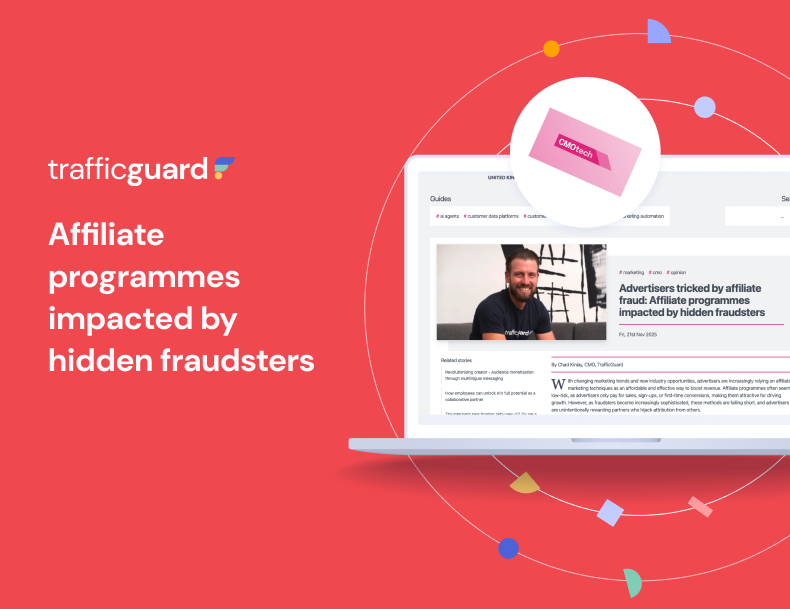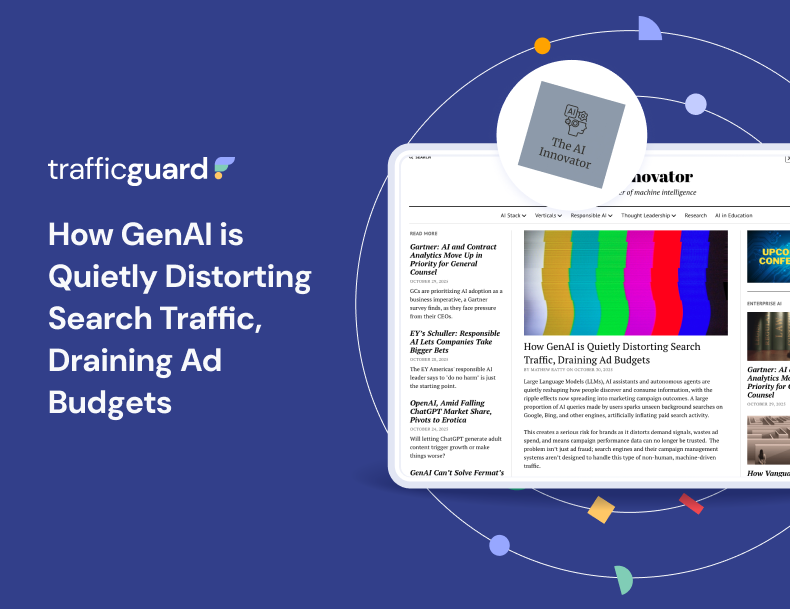Understanding and impetus to clean up fraud still lacking

This article was first published by Which-50.
Despite warnings of billions of dollars going to waste and funding criminal activity, the understanding of advertising fraud remains varied across businesses. Even some of the businesses that do understand the scope of the problem consider it an unavoidable “additional cost” to advertising online and see little incentive in cleaning it up.
That is according to Luke Taylor, founder and COO of fraud prevention company TrafficGuard, who spoke to Which-50 about the current period of uncertainty in the industry.
“Many see ad fraud as an additional cost of advertising online,” Taylor tells Which-50.
“This is for a variety of reasons – ignorance to the full extent of the impacts; fear that addressing the problem might impact their ability to deliver on their KPIs; general inertia or cynicism in whether it can be adequately addressed.”
Taylor is warning that with more businesses being forced online this year the impact of advertising fraud will widen to capture more smaller businesses, typically with less resources to prevent it.
“Advertising traffic is the new foot traffic,” Taylor says.
“Since cities and countries started going into lockdowns, more small businesses, especially retail, turned to online advertising to counter the loss of physical footfall. These new advertisers have less knowledge of invalid traffic, making them particularly vulnerable.”
TrafficGuard data shows a relatively steady level of invalid traffic in 2020 at around 30 per cent.
Also check out: Fraud is sapping billions from advertisers; there’s no better time to fight it than now
"Advertising traffic is the new foot traffic."
While invalid traffic is not necessarily fraud (TrafficGuard defines it as any advertising that isn’t out of genuine interest in the advertised offering) it is still worrying for marketers, many with tighter budgets this year.
“Amongst our clients,” Taylor tells Which-50, “COVID hasn’t necessarily caused an increase in invalid traffic. However, COVID is certainly increasing the impact of invalid traffic on businesses.
“This is because more businesses are relying on online advertising; other sales-contributing channels have been hamstrung by COVID; and because there are more new advertisers in 2020, ignorant to how fraud impacts their advertising.”
At the same time, many of the targeting tools used in advertising are being phased out by tech giants and regulators, placing more importance on creative and contextual marketing, according to Taylor.
Apple will curtail the tracking of iPhone users next year while Google is phasing out the tracking cookies many have relied on for years to target consumers. Lawmakers and regulators are also tightening the leash of online advertisers enacting more strict conditions for the collection and processing of personal information around the world.
“The days of targeting users for advertising based on their behaviour and information shared across sites are numbered,” says Taylor, “these [changes in regulation and tracking] are all nails in that coffin.
“This will impact the effectiveness of programmatic advertising, it will also impact the sharing of data from publishers to Google and Facebook within their advertising networks.”
Also check out: Opacity a key issue with the digital advertising industry
The days of targeting users for advertising based on their behaviour and information shared across sites are numbered, these [changes in regulation and tracking] are all nails in that coffin.
‘Timewarp’
Taylor describes the COVID spurred changes of 2020 as a “timewarp” for many businesses, forcing some online and distributing workforces like never before. He says the shift presents challenges and opportunities, most evident in the retail sector.
“Businesses that didn’t have eCommerce operations struggled during lockdowns. Retailers that didn’t have online communities, emailing databases, proficiency in online advertising have struggled. Some have taken the opportunity to adapt to the digital world, some didn’t survive.”
Many of the survivors are now more reliant than ever on online advertising to complement their digital offerings. But they join an online advertising world in a state of flux, the TrafficGuard founder says.
Also check out: Predictions Series 2021: TechBytes with Luke Taylor
“Marketers need to gain a better understanding of context to guide their future strategies and put more emphasis on creativity to cut through when their audiences aren’t as targeted as they once were. Advertising creative will need to work harder when campaign targeting is more contextual rather than based on intent and behaviour signals shared through the ecosystem. Marketers should start planning for this, developing capabilities and testing solutions now.
“Increasing limitations to cross-site tracking will make it harder for marketers to see which channels, creatives, messaging etc contributed to each conversion. In turn, this makes it difficult to know where to invest and optimise.”
Get started - it's free
You can set up a TrafficGuard account in minutes, so we’ll be protecting your campaigns before you can say ‘sky-high ROI’.
At TrafficGuard, we’re committed to providing full visibility, real-time protection, and control over every click before it costs you. Our team of experts leads the way in ad fraud prevention, offering in-depth insights and innovative solutions to ensure your advertising spend delivers genuine value. We’re dedicated to helping you optimise ad performance, safeguard your ROI, and navigate the complexities of the digital advertising landscape.
Subscribe
Subscribe now to get all the latest news and insights on digital advertising, machine learning and ad fraud.







